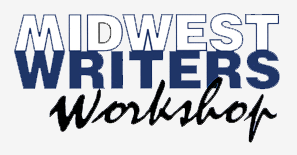At the Midwest Writers Workshop, an agent panel gave some wonderful, straightforward advice about how to construct your pitch. You could use this formula as part of a query letter or in a live pitch. Brilliant!
Option 1
I have a completed [word count][genre] titled [title] about [protagonist name + small description] who [conflict].
Option 2
(1) What does your character want?
(2) Why does he want it?
(3) What keeps him from getting it?
Option 3
(1) Character name/description
(2) The conflict they’re going through
(3) The choices they have to make
4 best resources on query letter writing + identifying agents to query
- QueryShark (opportunity to get your query critiqued + read others critiqued)
- AgentQuery
- PublishersMarketplace (for in-depth info on agents + publishing deals, costs $20/year)
- Agency websites (as you begin to select and customize your queries and submissions for each agent appropriate for your work)
Other tips
- Think of your query letter to the agent/editor as the first step in the SEDUCTION process.
- Never say: “Let me start by telling you the backstory.” Your story doesn’t start in the right place if that’s necessary.
- If you must mention 4+ characters in your pitch for it to make sense, you probably have some problems with the story.
- The voice in the pitch should match the mood of the story.
- Only start querying when you’d be comfortable with your manuscript appearing as-is (and being sold) between covers on major chain bookstore shelf.
- It’s better to pitch a standalone novel “with series potential” (rather than pitching it as a series).
- Looking for more? Check out Ortiz’s synopsis advice.

Jane Friedman has spent nearly 25 years working in the book publishing industry, with a focus on author education and trend reporting. She is the editor of The Hot Sheet, the essential publishing industry newsletter for authors, and was named Publishing Commentator of the Year by Digital Book World in 2023. Her latest book is The Business of Being a Writer (University of Chicago Press), which received a starred review from Library Journal. In addition to serving on grant panels for the National Endowment for the Arts and the Creative Work Fund, she works with organizations such as The Authors Guild to bring transparency to the business of publishing.


Thanks for this, Jane. It reminds me to focus on the conflict, which I forget to do. I think in life we’re generally conflict averse, so it’s hard to remember to lead with the drama when talking about our novels.
Very helpful, thank you!
Are you a Libra? I am! 😉
[…] 101 at the Midwest Writers Workshop. And now Jane as put them all in one place — hurrah! Excellent, succinct advice here for those, like me, in the pitching/querying stages of […]
Thank you Jane:-) May I share this on FB, Twitter and my website?
On another note, I read many years back that good plotting dictates that you begin your story at the point closest to the incident that will forever change the life of the protagonist.
I’m re-editing Chapter 4 of my memoir. This chapter will include the call to adventure/my refusal to the call…i.e., the incident that forever changes my life in my memoir. If I have 20 pages per chapter and roughly 10-12 chapters total, I’m wondering if this is appropriate as I am writing chronologically!
Kindest regards,
Carina
Absolutely, please share however you like!
Regarding the plot/structure of your memoir, yes! The “inciting incident” (when everything gets turned upside down. e.g., in Star Wars, this would be when Luke leaves home when his family is killed) should typically happen within the first few chapters. There are some wonderful books that discuss the finer details of this, and one of the best is PLOT & STRUCTURE by James Scott Bell, which is for novelists, but can also be applied to memoirs. Highly recommend.
THanks Jane this is great. I love it when advice is simple and good at the same time. I followed you here from Writer Unboxed. Looking forward to more good stuff. Good luck.
Thanks so much for following me here! Much appreciated. 🙂
Great stuff, Jane!
With your permission I, too, will share this in a few places.
Absolutely!
[…] And this is why writers struggle with queries, because they can’t bridge the gap between writing to entertain (or inform or inspire) and writing to persuade. It’s a different mindset, and it requires an ability to look at one’s work as a product that has a selling point. (If you need more information on how to formulate a hook, click here.) […]
[…] The Basic Pitch Formula for Novelists. Short, sweet, and powerful. […]
[…] Identify the protagonist and what they want and why. Describe what keeps him/her from getting it. Think along these lines: SOMEBODY wants SOMETHING and has a HARD TIME GETTING IT. (via Jane Friedman) […]
Thanks for the info! Very helpful information.
[…] Identify the protagonist and what they want and why. Describe what keeps him/her from getting it. Think along these lines: SOMEBODY wants SOMETHING and has a HARD TIME GETTING IT. (via Jane Friedman) […]